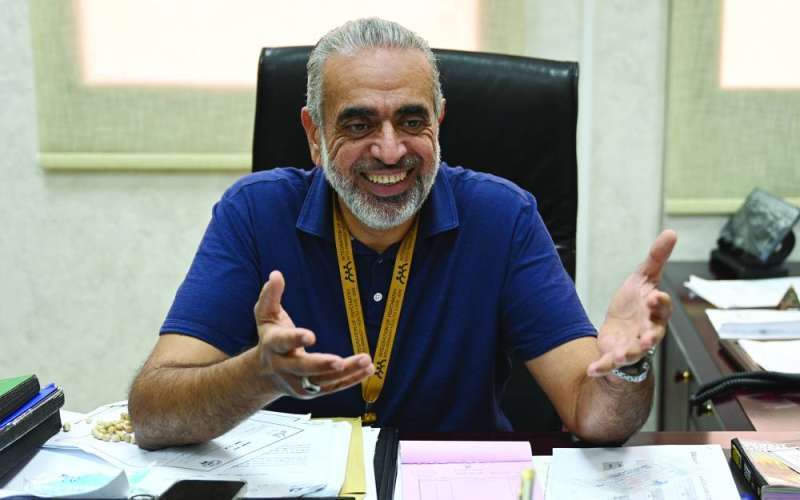The Director of the Addiction Treatment Center in Kuwait, Dr. Adel Al-Zayed, says the re-formation of the Supreme National Committee for Drug Control overcomes many obstacles, since it brings all parties concerned with the issue of addiction under one roorf which is sufficient to develop a national plan to deal with the problem and eliminate it.
Al-Zayed told a local Arabic daily that the trend to establish private clinics for the treatment of addiction will be discussed in the Supreme Committee for Drug Control, and said he hopes the controls in this regard will be quickly put in place, to see the light soon, pointing out that the Addiction Treatment Center provides an integrated service, and is capable To accommodate patients in Kuwait for the next ten years with its new expansion.
He stressed on the importance of the entertainment aspect in supporting the psychological state and people’s sense of well-being, stability and pleasure, he indicated that the absence of entertainment is a reason for the existence of social problems, drug abuse, violence and other problems, but it is not the main reason.
He explained that there is an increase in the demand for treatment for addiction, as there has become a very great awareness of the drug issue and its follow-up, which has greatly affected the desire of many addicts to recover and get out of the problem, especially since the current trend lies in treating the patient societally, pointing out that the process Retention is unacceptable for the addicted person, and it does not lead to positive results.
He went on to say, “We cannot deny the importance of the entertainment aspect in supporting the psychological state, and the people’s sense of well-being, stability and pleasure, as there is no society without arts, and the entertainment aspects are part of culture, arts, etiquette, etc., but it is wrong to say that there are no entertainment aspects in Kuwait. It is true that there are no festivals or entertainment cities, but this does not mean that there is no entertainment in the country.
“Many Kuwaiti youth have distinctive entertainment hobbies,” he said, “and they resonate greatly in the Gulf countries, and therefore the entertainment aspect is not completely closed, and the entertainment aspect must take the form of tourism, which is largely supported by the state, like some Gulf countries, but let us assume that the entertainment aspect does not exist but am I using this as an excuse or cause for social problems like drug addiction and violence? I do not think that the absence of recreational aspects is the main reason for the spread of addiction and social problems, but it may be a reason.
“From my point of view, one of the most important challenges and obstacles is the absence of the National Committee for Drug Control. The First Deputy Prime Minister and Minister of Interior, Sheikh Talal Al-Khaled, decided to reconfigure it under the chairmanship of the Minister of Health, Dr. Ahmed Al-Awadi, and we hope that the committee’s meetings will be a nucleus for placing all parties dealing with the issue of addiction in one place, in order to develop a national plan to deal with the problem.
“I would like to point out that the Addiction Treatment Center provides an integrated service and is capable of accommodating addiction patients in Kuwait for the next 10 years with its new expansion, especially since the current trend in addiction treatment is to treat the patient societally and the retention process is unacceptable and does not lead to positive results.
“There is no doubt about that, as any of the service sectors cannot function on its own, as the role of the private sector is very important in supporting work in the government sector by providing any service to society, and we need to support it, as this raises a great burden on Health services in the Ministry of Health, especially in the addiction treatment sector, and this is one of the topics that will be discussed in the Supreme Committee for Drug Control headed by the Minister of Health,” he added.
Al-Zayed touched on the challenges related to the rehabilitation phase after the addiction treatment phase, explaining that there are problems related to addiction or some administrative matters that could negatively affect the support of the rehabilitation program for the addicted person, and one of the things that must be known is that addiction is a chronic disease.
“Here I cannot say, the person, after his recovery, will not return to addiction, as the challenges of dealing with the disease are very great, and the patient must remain fully aware of all the thoughts and psychological and mental changes that occur to him even during the recovery period, even if it extends for years, so that he can prevent any changes that occur to him and lead to his return to drugs,” he said.
He pointed out that, therefore, it is necessary for the recovering youth to focus on the warning signs of relapse, which may be far from the field of addiction and abuse.

